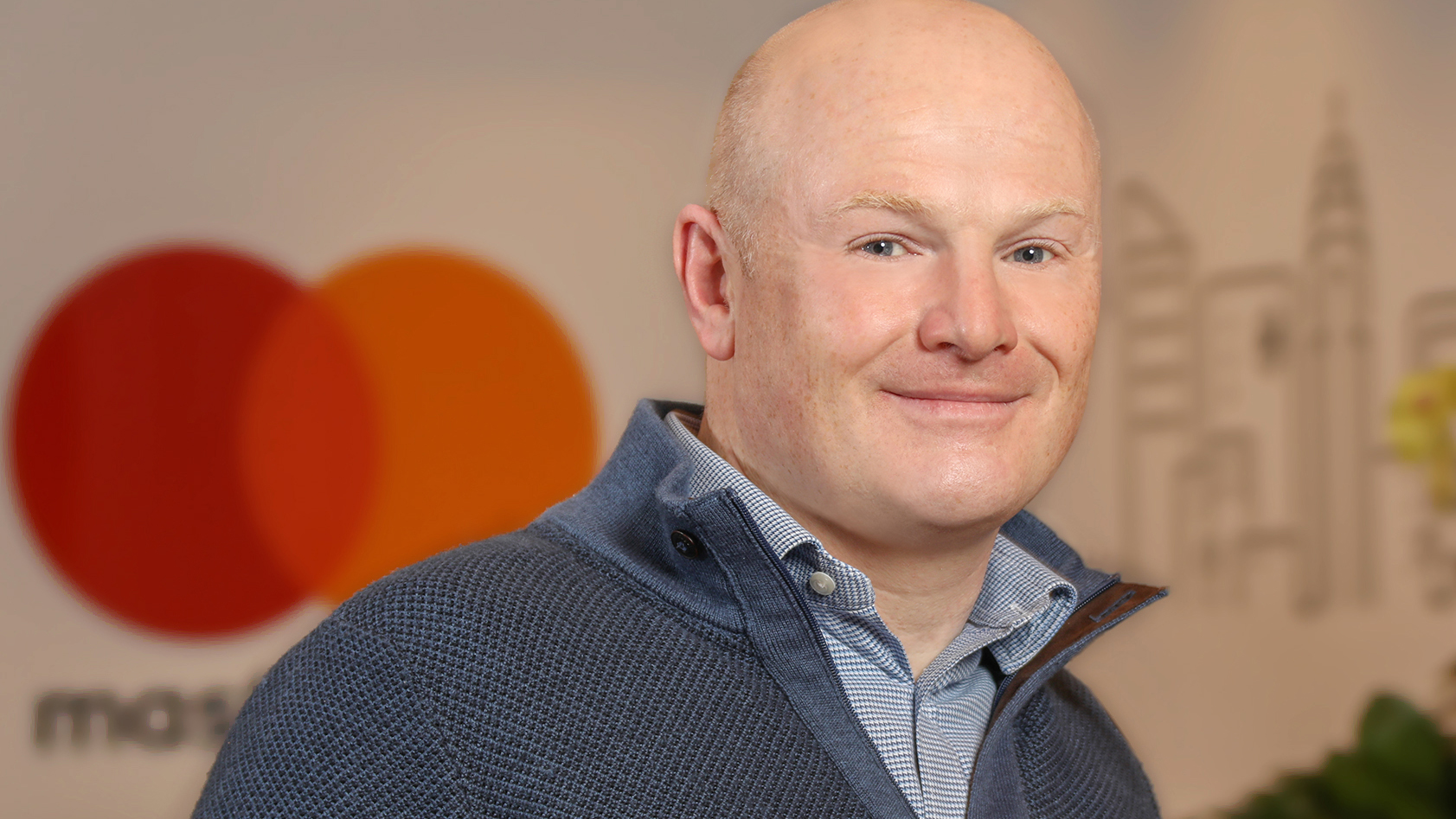
The global payments company is getting ahead of emerging technologies, such as 5G and the Internet of Things, that will accelerate the move away from cash, explains its chief innovation officer.
Spotting opportunities for innovation is not difficult today, according to Ken Moore, chief innovation officer at Mastercard. Significant trends, including changing customer behaviour, adoption of emerging technology and the drive to digital, have only been accelerated by the Covid-19 pandemic.
“However, separating signals from noise is getting increasingly complex,” he says. “The challenge is to identify the great ideas among the good ones, and figure out where to focus.”
Within Mastercard Foundry, the research and development division that Mr Moore heads up, is a collection of interdisciplinary teams that focus on the future of commerce. “They spend time testing emerging technologies, researching behaviours and trends, and exploring how to deliver differentiated products, services and experiences,” Mr Moore says.
Career history: Ken Moore
- 2016 Mastercard, chief innovation officer
- 2008 Citi, head of Citi Innovation Labs
- 2007 Zarion, head of business process consulting
- 2001 Accenture, executive
The teams have experimented with blockchain and cryptoassets, artificial intelligence (AI), machine learning, augmented reality (AR) and virtual reality (VR). More recently, they have turned to 5G, the Internet of Things (IoT) and quantum computing.
“We need to get ahead of these emerging technologies, understand what opportunities they create and identify the point at which a technology is mature enough to be deployed in an organisation like ours,” he says.
Keeping abreast of emerging technologies is part of Mastercard’s transformation agenda. Indeed, the organisation has profoundly changed over the past decade, moving from being a card payments company to a financial services business that spans data, identity and business-to-business activities. Its customer base has expanded beyond banks to mobile network operators, digital giants, fintechs and governments.
Accelerating growth
By understanding new technology and having a culture of experimentation, Mastercard has scaled up businesses from within, grown through acquisitions, partnered and actively engaged in the global fintech community through its Start Path programme, which works with later-stage start-ups.
“The programme gives us another growth muscle: the ability to create highly effective partnerships, where we can grow with a fintech in the market, connecting them to us and our banking partners,” says Mr Moore. Mastercard sources start-ups for about 120 large banks and merchants worldwide, as well as for itself.
Over the next two years, we will see innovation supercharged by hyper-fast processing provided by 5G
There are currently 250 start-ups involved in Start Path. “In all cases, we’re trying to pilot their solutions internally or with customers,” he says. One recent example is Doconomy; the Swedish fintech has created a carbon calculator that banks can integrate into their apps, which works out the carbon footprint for each purchase made by a customer.
This taps into the rise of cause-driven consumerism, illustrative of the changing customer behaviour trend. “We can educate people on what type of a carbon footprint they’re incurring from their purchases. And then, through the Priceless Planet Coalition, we can help people to offset that carbon footprint by planting trees,” says Mr Moore. The solution has been deployed and is scaling globally.
Emerging technologies
Mr Moore lays out his predictions for when nascent technologies will make an impact on financial services. “I think blockchain, AR and VR are here today, but use cases will continue to mature. AI and machine learning are also there and will increasingly integrate into everything as more enterprises adopt them,” he says. “Over the next two years, we will see innovation supercharged by hyper-fast processing provided by 5G, and constant connection to massive computing power offered by IoT and cloud. These connectivity technologies are a key area of focus for us.”
In addition to enabling faster speeds, less latency and edge computing, 5G expands what is possible before, during and after a transaction, according to Mr Moore.
On July 13, Mastercard announced its partnership with Verizon in the US to deliver 5G-enabled contactless payments. “Through Mastercard Foundry, we’re going to stand up living 5G labs to demonstrate experiences that couple Mastercard’s innovation together with 5G networks,” he says.
One focus area is small and medium-sized enterprises (SMEs), which have been hardest hit by the pandemic and have not participated fully within the digital economy, predominantly because the jump to digital has been financially out of reach. “We want to use the increased speed provided by 5G to create a new acceptance solution for SMEs via their mobile phone,” says Mr Moore.
He explains: “Today, it takes about 100 milliseconds (ms) for an authorised transaction. Using 5G, we want to reduce it to 30ms and then use the 70ms to create a more compelling experience for the merchant by wrapping in add-ons such as instalments, rewards and redemption offers.” Mastercard will pilot new solutions in the US first and then roll out globally as 5G comes online in different markets.
Mr Moore believes that the utility of digital payments will increase to such a level that they will become the preferred payment method and cash will decline as a result. “There will be a strong acceleration away from cash towards digital money, driven by the increased utility, personalisation and experience that 5G, coupled with other technologies like IoT and AI, will deliver,” he says.


